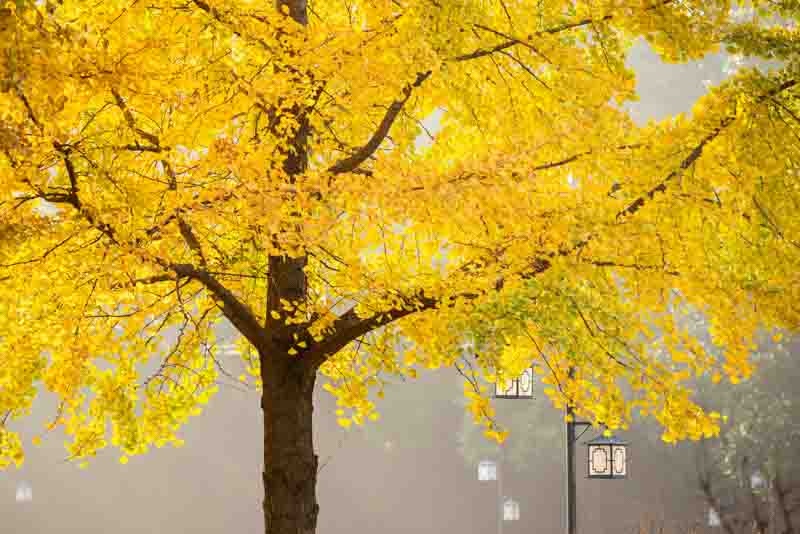Maidenhair Tree: A Testament to Survival and Beauty
The Maidenhair Tree, scientifically known as Ginkgo biloba, is a unique and ancient species that graces modern landscapes with its distinct beauty and resilience. Here’s what to know about this remarkable tree:
Historical Significance: Ginkgo biloba, often called a “living fossil,” is the sole survivor of the Ginkgophyta division, with its lineage tracing back over 270 million years. This tree has witnessed the dinosaurs’ reign and their extinction, and it has remained virtually unchanged through millennia.
Distinctive Foliage: The Maidenhair Tree is named after its fan-shaped leaves, which resemble the leaflets of the maidenhair fern. These bright green leaves turn a stunning shade of yellow in the fall, creating a breathtaking landscape feature.
Symbol of Resilience: Ginkgos are known for their incredible resilience and longevity. They can live for thousands of years. Notably, Ginkgo trees in Hiroshima, Japan, survived the atomic bomb in 1945 and continue to thrive, symbolizing hope and peace.
Dioecious Nature: Ginkgo trees are dioecious, meaning individual trees are either male or female. Female trees produce small, plum-like seeds with a fleshy outer layer that, when decomposed, emits an unpleasant smell, while male trees do not produce seeds and are often preferred for urban planting.
Medicinal Properties: Ginkgo biloba leaves contain flavonoids and terpenoids, compounds believed to have potent antioxidant and circulatory benefits. Extracts from the leaves are used in herbal medicine to enhance cognitive function, though scientific evidence is mixed.
Urban Tolerance: Maidenhair Trees are incredibly tolerant of pollution, soil compaction, and urban stressors, making them excellent choices for city environments. They are often planted along streets and in parks.
Planting and Care: Ginkgos prefer full sun and can adapt to a range of soil types. They require minimal care once established, making them a low-maintenance option for gardeners.
Cultural and Aesthetic Value: Beyond its practical benefits, the Ginkgo biloba is celebrated for its aesthetic appeal and cultural significance, particularly in East Asian traditions. It’s a popular subject in art and literature, symbolizing endurance, vitality, and the interconnectedness of past and present.

